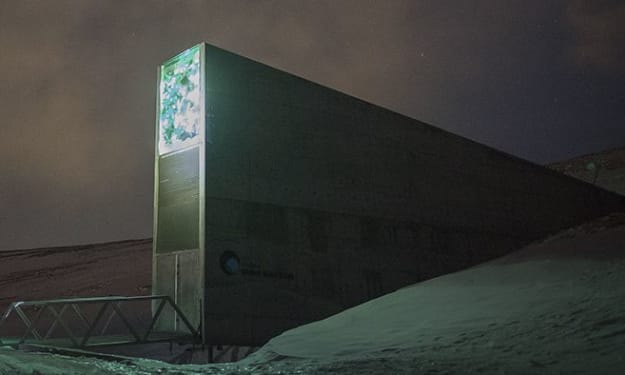Content warning
This story may contain sensitive material or discuss topics that some readers may find distressing. Reader discretion is advised. The views and opinions expressed in this story are those of the author and do not necessarily reflect the official policy or position of Vocal.
**Unveiling Antarctica's Enigmatic Secrets: Elon Musk's Unprecedented Expedition**
facts

In the vast expanse of the southernmost continent lies a secret that has remained hidden for centuries, a secret so profound it could change everything we thought we knew about our world. Antarctica, with its foreign expanse and frozen landscapes, has always held an allure like no other place on Earth. From tales of lost civilizations to rumors of extraterrestrial encounters, this icy desert has intrigued and captivated explorers for generations.
One such explorer, Elon Musk, the founder of SpaceX, Tesla, and Neuralink, has long been at the forefront of technological innovation. But what if his pursuit has led him to uncover something far more profound than even he could have imagined?
Armed with cutting-edge technology and an insatiable thirst for knowledge, Musk embarked on a treacherous journey into the heart of Antarctica. What he uncovered beneath its frozen surface was beyond comprehension, something so terrifying yet awe-inspiring that it had remained concealed for eons.
Antarctica, despite its brutal conditions, has always fascinated scientists. Its vast size and near-uninhabitable environment hint at the possibility of numerous secrets waiting to be unearthed. And so, the journey began when a group of scientists stumbled upon a million-year-old DNA sample in the Scotia Sea, just north of Antarctica.
This ancient genetic material, believed to have originated from diatoms, served as the catalyst for the notion that Antarctica had once been more hospitable and experienced significant changes over time. Determined to find further evidence, the team embarked on a perilous mission, braving the deadly Drake Passage and scouring rocks in search of fossils that would unveil Antarctica's ancient past.
Their efforts paid off when they stumbled upon a treasure trove of fossils dating back millions of years. Among them were the fossilized remains of marine creatures, dinosaurs, and ancient birds, painting a picture of a once-thriving ecosystem. But perhaps the most extraordinary revelation came when they discovered 50-million-year-old sperm cells adorning the egg case of an extinct worm species, challenging their previous assumptions about the continent's icy desert.
As their discoveries unfolded, doubts gradually dissipated, and a new theory began to take hold among the scientists. They entertained the notion that Antarctica was once a thriving tropical rainforest, replete with lush vegetation and towering trees, millions of years ago.
But the surprises didn't end there. In 2021, scientists unearthed an enormous breeding colony of ice fish nestled beneath the sea floor, providing further evidence that life once thrived in Antarctica's icy waters. And in a groundbreaking discovery, geologists drilling through the ice stumbled upon thriving sponge organisms, challenging our understanding of life beneath the frozen surface.
But perhaps the most astonishing revelation came when scientists detected a peculiar groove in the Larson Ice Shelf, leading them to uncover an entire ecosystem teeming with life beneath the ice. Shrimp-like crustaceans gracefully swam at depths of approximately 1600 feet, revealing a hidden world beneath Antarctica's frozen exterior.
As their expedition continued, scientists stumbled upon a colossal mountain range concealed beneath the icy depths, stretching over 1200 kilometers wide and towering 3000 meters high. This hidden range, buried beneath the ice for millions of years, hinted at untold secrets waiting to be revealed.
But amidst these astonishing discoveries, a pressing question emerged: what cataclysmic events had precipitated Antarctica's profound transformations? Two compelling theories emerged, proposing that global climate change and dramatic changes in ocean currents played pivotal roles in the continent's freezing.
These theories, linked by visionaries like Musk, provide the best explanation for Antarctica's metamorphosis, shedding light on Earth's evolution over millions of years. Yet, they also raise concerns about the impact of climate change on our planet's delicate ecosystems.
Recent events, such as the unprecedented heat waves in Antarctica and the alarming retreat of ancient ice sheets, underscore the urgent need for action to address climate change. As scientists race against time to unravel the mysteries of Antarctica's past, they also sound the alarm about the potential consequences of unchecked global warming.
In the midst of these challenges, Antarctica remains a hot spot of scientific discovery, full of surprises and untold secrets waiting to be revealed. From its dynamic sand dunes to its fiery volcanoes, this icy desert continues to captivate and intrigue explorers and scientists alike.
As we journey into the depths of Antarctica's frozen wilderness, we are reminded of the fragility of our planet and the importance of protecting its delicate ecosystems. For in unlocking the secrets of Antarctica, we may uncover not only the mysteries of our past but also the keys to our planet's future.
About the Creator
Alexander Mensah
With a blend of expertise, creativity, and dedication, my article promises to captivate and entertain. Backed by thorough research and a passion for storytelling, each word is crafted to inform and engage readers. Join the conversation
Enjoyed the story? Support the Creator.
Subscribe for free to receive all their stories in your feed. You could also pledge your support or give them a one-off tip, letting them know you appreciate their work.






Comments
There are no comments for this story
Be the first to respond and start the conversation.